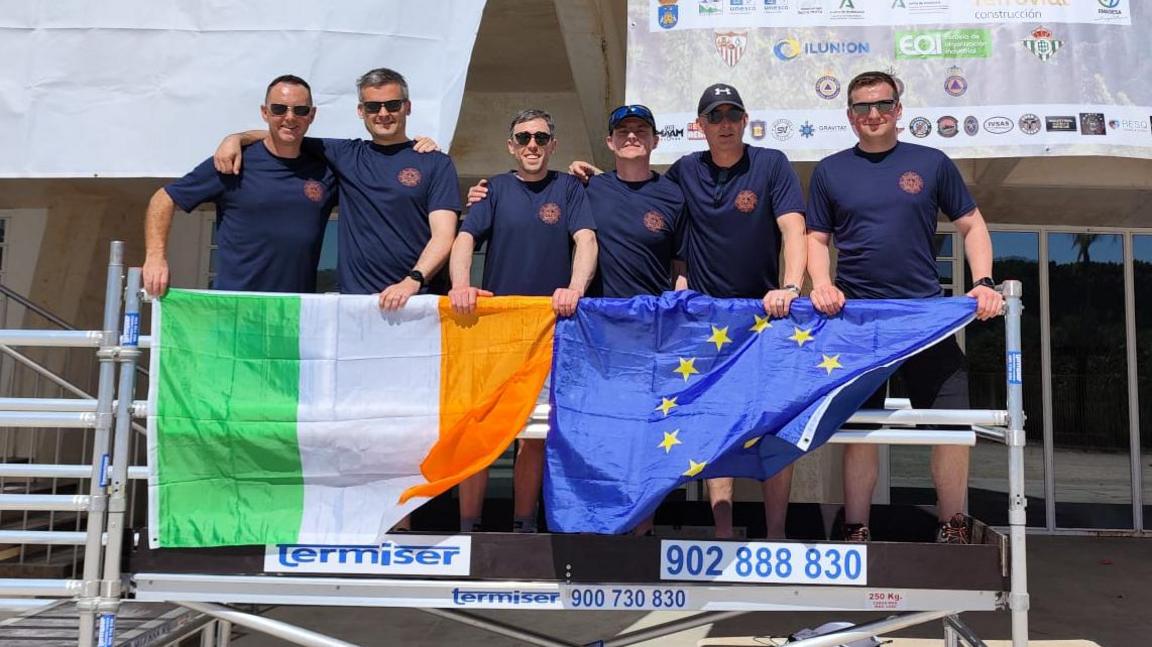Irish firefighters save motorcyclist's life in Spain

Dave Connolly (left) and his colleagues were heading to Málaga airport when the incident happened on Sunday
- Published
A Dublin firefighter has described the moment he and his colleagues saved a motorcyclist's life after they found him unresponsive on a Spanish motorway.
Dublin Fire Brigade station manager Dave Connolly was attending a conference in Seville with a group of six officers from the service's technical rescue team.
They were on their way to Málaga Airport to board a flight back home on Sunday when they discovered the motorcyclist who had collided with a car.
Without hesitating, the group pulled over their hire car and blocked off part of the road to create a safe environment for them to work in.
"Immediately we just switched into be professional firefighters and paramedics," Mr Connolly told BBC News NI.
The team assessed the critically-ill patient while directing onlookers to contact local emergency services.
Arrived within 60 seconds
Mr Connolly said he and the other members of the team had arrived within 60 seconds of the collision taken place.
He said that had they arrived any later, the motorcyclist might have died due to the severity of his injuries.
"Unless there's an intervention within one or two minutes, you're going into respiratory arrest and shortly after that cardiac arrest," he said.
"So that patient is possibly the luckiest man in the fact we happened to be driving around at that time - because he wouldn't have survived if they had waited for the ambulance.
"He is still seriously ill but recovering in ICU and we wish him a speedy recovery."
Allow X content?
This article contains content provided by X. We ask for your permission before anything is loaded, as they may be using cookies and other technologies. You may want to read X’s cookie policy, external and privacy policy, external before accepting. To view this content choose ‘accept and continue’.
Saving lives is part of the job description for Mr Connolly and his colleagues, but the incident in Seville has left him with a "strange sensation".
"Afterwards there's conflicting emotions of elation when you're going: 'Great, we've saved a man's life', but there's also a little bit of humility when you're going: 'We've saved a lad's life, that's our job, that's what we do.'
"We just help people.
"There must be Irish in that patient's family because he is just so lucky that we happened to be going past when it happened."
The team managed to make it to the airport gate "by the skin of their teeth", and were bombarded with messages of support upon their arrival back in Dublin.